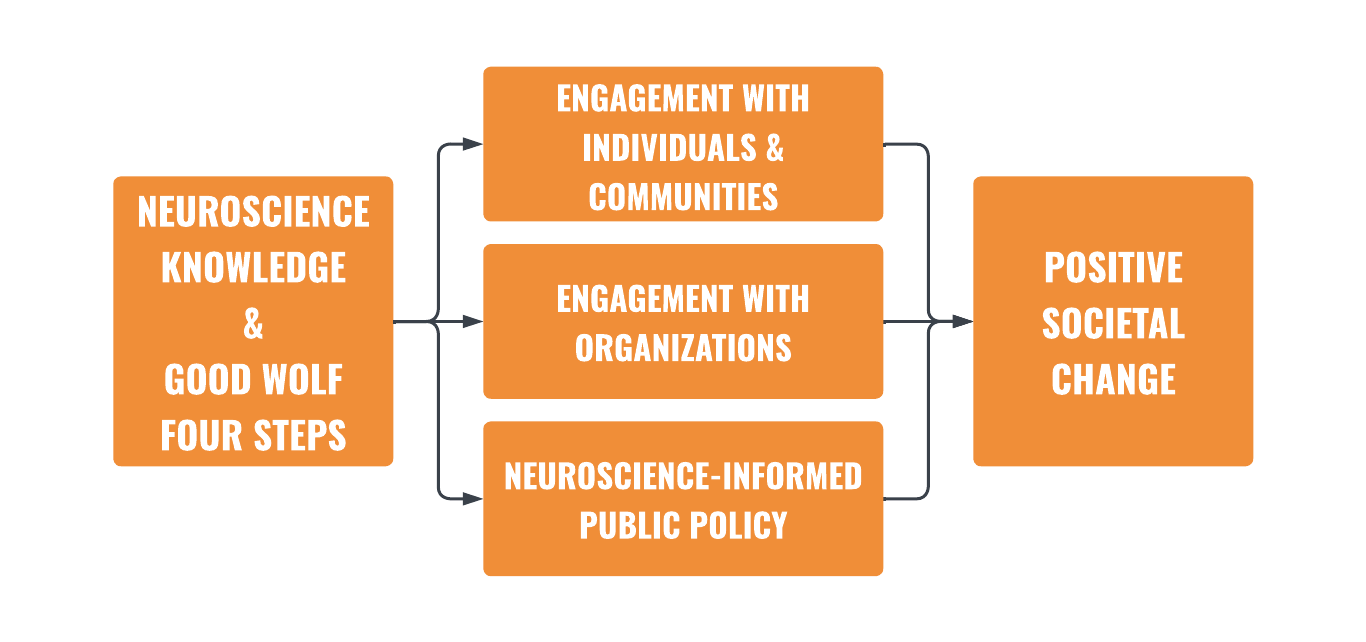If the human species is to survive and thrive, we need to tackle major challenges requiring coordination, collaboration, and communication across national, racial, religious, political, socioeconomic and ethnic lines.
Doing so successfully requires that, individually and collectively, we make decisions and take actions based on deliberative processes grounded in an accurate understanding of the world and each other and on prosocial values. Operationally, this means we must shift away from a primarily “us versus them” worldview – where we extend empathy and charity towards those who are “us” and defend against the threat of “others” who are perceived as less worthy or threatening – to a worldview in which we extend our pro-social tendencies of compassion and fairness to “the other” and in which we prioritize and value shared needs.
Our singular challenge at this critical moment in history is to see all of humanity as our in-group – one big, diverse, worldwide human tribe.
By making accessible what we know from neuroscience about optimal brain development and functioning, Good Wolf believes we can engage individuals to examine themselves and their preconceptions, develop their personal competence and capacity for self-governance, and act in ways that are consistent with their conscious values – rather than unconscious impulses. We anchor this work in a neuroscience-informed four-step approach geared toward opening individuals to a different way to listen and respond. The four steps are: (1) Self-Governance, (2) Competence, (3) Individual Value-Based Action and (4) Collective Value-Based Action.

The initial outcomes of a pilot project in a human services organization demonstrate that teaching neuroscience can facilitate individuals’ willingness to examine themselves, control their impulses, and alter their behaviors – resulting in more efficient and healthy cultural climates within organizations.
We propose to apply our interventions to additional organizations, to expand these interventions to individuals and communities in multiple venues, and to support the creation of public policies that are neuroscience-informed, grounded in a shared sense of humanity, and focused on effectively improving lives on a larger scale.
